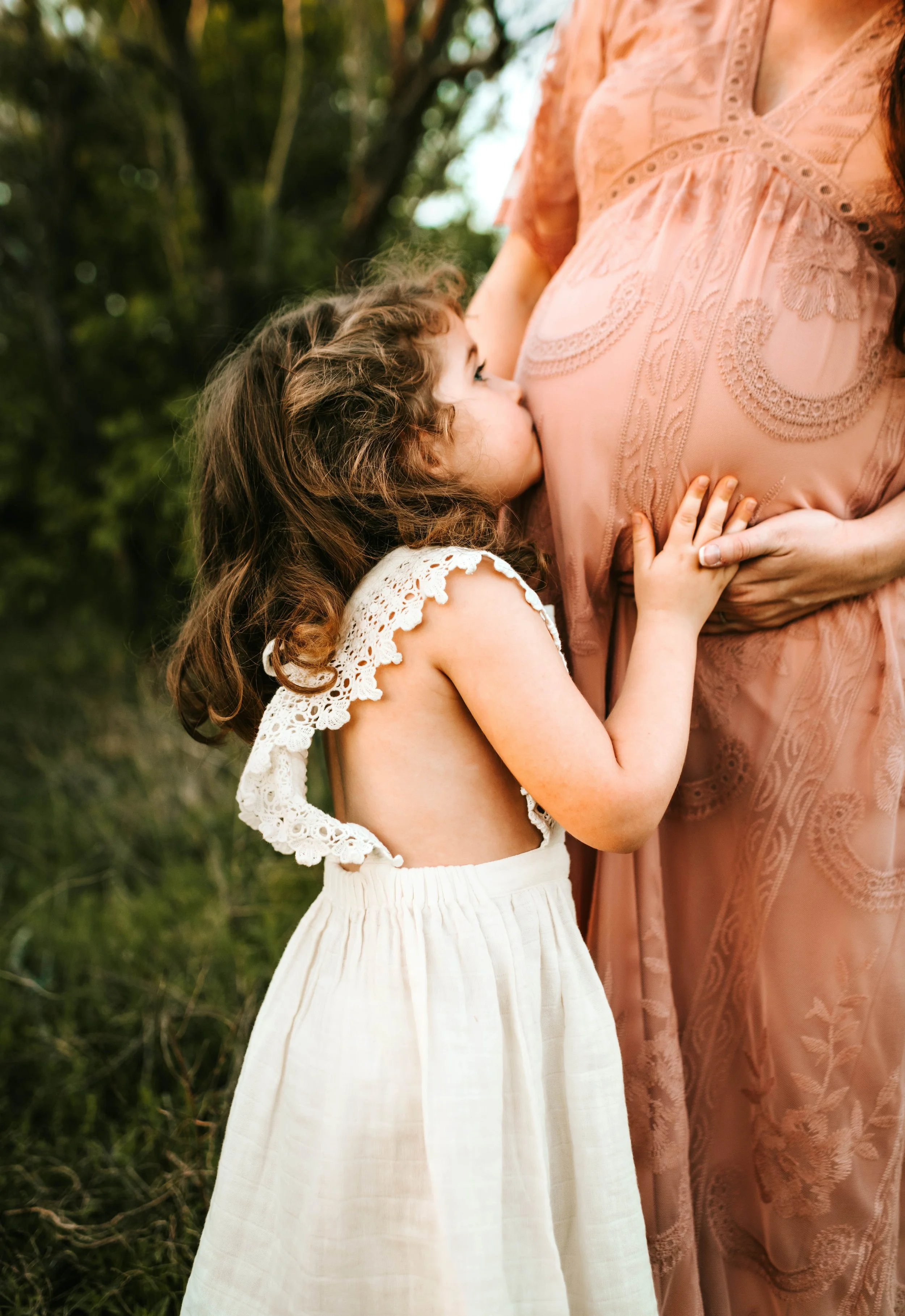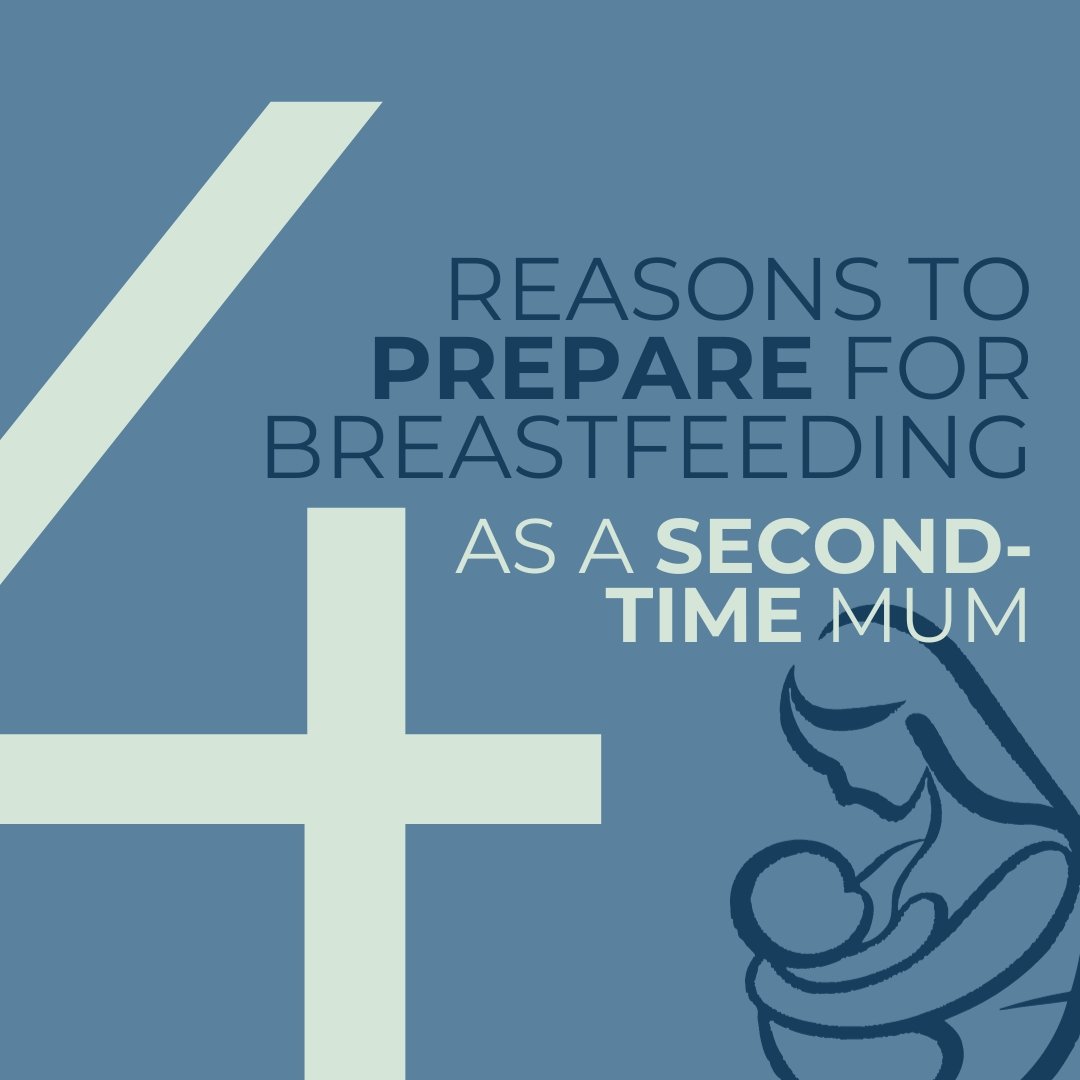Why you Need to Prepare to Breastfeed as a Second-time Mum (Even if you had a Straightforward Journey Before)
I recently asked in a parenting Facebook group what you wish you had known when pregnant for the second time and planning to breastfeed and the overwhelming response went something along the lines of 'Just because I have done it before doesn't mean I know what I'm doing.'
It's one of those parenting clichés that every child is different. Yet everyone who becomes a parent for the second time is genuinely surprised that their second baby really is so very different from the minute they're born. Surely there's very little variation in a tiny squish who has only 3 basic needs in life?
And this is all the more true for breastfeeding.
Because no matter your experience first time round - immediate success, tricky start, stopped before you wanted to, lack of support, poor latch or tongue tie - your second time will be different.
It could even be better than the first time!
I know you've got a lot on your mind as you prepare for becoming a parent for the second time.
You're probably worrying about how your eldest will feel no longer being the star of the show in the family. You're probably wondering how to avoid your eldest feeling jealous or hurting the new baby. You're probably waking up in a cold sweat at night thinking about how you're going to cope with the broken, sleepless nights when you'll have a toddler to run around after in the daytime.
You may even be biting the inside of your cheek as you battle nursing aversion during pregnancy – yet not feeling ready to stop breastfeeding your oldest child – and wondering whether this will continue once the baby is born and how you'll manage it.
It's a lot to think about.
So why not take one thing off your mind – and learn what you can for a successful breastfeeding journey?
Here's why you need to prepare to breastfeed as a second-time mum.
1. It genuinely is different with different children
I know I've said it already but it is honestly astonishing how different it can be.
One mum said to me 'I've breastfed four children and each journey has been massively different!'
If you had a fairly straightforward journey the first time round - as I did - then you might be feeling extra confident that you'll nail it again. Sure, perhaps you'll have the know-how to problem solve or know what position is most comfortable for you.
But your second child might have a physical issue that could affect the journey, such as tongue tie - as mine did.
However, the usual tell-tale signs - weight loss, pain difficulty regulating supply, weren't really an issue, I think because I was tandem feeding and my eldest helped to regulate the supply. This meant my youngest didn't really have any weight issues. And I didn't have any pain.
So how did I know?
It just didn't ... look right. She was a bit dribbly while feeding, she never really settled into a slow, steady rhythm with feeding, and she looked like she had a shallow latch.
And it's only because I had already trained as a breastfeeding supporter that I was looking out for signs that things weren't 100%. It might not have affected her milk intake, but it might have caused issues when weaning, with speech or later on as an adult.
Preparing for this possibility, knowing what to look out for could save a whole lifetime of issues.
And that will give you the confidence to know you'll get the best chance to breastfeed the second time round for as long as you want.
2. You will be even more tired – and won't be able to catch up on sleep
You probably remember the exhaustion of those first few weeks and months (and maybe years!) with your first.
And this time round the phrase 'sleep when the baby sleeps' is going to be even more infuriating - because that's when you're going to be trying hard to be present for your eldest, spending time with them, re-establishing your bond and reassuring them of your boundless love.
This means you'll likely have less time to troubleshoot in your own time and you'll find it harder to think straight and stay calm when things are getting tricky - which is essential for a successful breastfeeding journey because when we're stressed, the hormone that releases breastmilk - oxytocin - can't be released.
So preparing for breastfeeding the second time round isn't just about learning about latch, position and how breastmilk works (although still very important!). It's about learning coping mechanisms, staying calm under pressure, understanding how to improve the quality of your sleep and learning to finding ways to nourish yourself so you can have the energy to be with your toddler – despite lack of sleep.
And that will give you the tools to remain calm so you can face the challenge of breastfeeding when you have two to think about.
3. Things might go really well this time round – especially if you struggled with support last time
If you had a particularly challenging experience the first time round then you might expect it to be the same second time round. Especially if there was a hospital stay, tube feeding or another reason that made latching on difficult – all of which can be magnified if there wasn't enough support in the first place.
Having had a difficult time the firs time round it can be easy for that to become your narrative – that breastfeeding is difficult and something to be fought for. This is completely understandable. The problem with that is that often it can become a self-fulfilling prophecy. Because what we think on a regular basis magnifies and puts us into a fixed mindset of 'breastfeeding is difficult'.
On the other hand, spending some time working through that narrative, accepting the previous experience and looking ahead with positivity can help to develop a growth mindset.
One where you say 'this could be easy.'
Preparing for breastfeeding the second-time round is as much about mentally preparing as physically preparing.
And repeating positive affirmations as a mental preparation will give you the determination for it to be different the second time round.
4. If you're hoping to tandem feed then that's a whole another learning curve – and not one many people talk about.
Given that at the last Infant Feeding Survey was 13 years ago, the stats are unclear as to how many people breastfeed up to 6 months - the minimum recommendation by the WHO. But we know that it's likely very very low.
And so continuing beyond 6 months up to a year and beyond can often make you feel lonely.
Even more so if you don't feel ready to wean when you become pregnant.
Quietly you even start wondering whether it's OK to continue to feed throughout pregnancy... and maybe even tandem feed after baby is born.
If there's inadequate support for breastfeeding a newborn, there is even less support, widespread knowledge and help available for tandem feeding.
People are often ashamed or embarrassed to talk about breastfeeding a toddler. But it is possible to continue breastfeeding an older child successfully when you have a newborn.
But it is a learning curve, and it can be difficult. Because your older child will start feeding like a newborn again – and that is exhausting.
So being prepared for what it might be like, knowing what to expect, hearing others' experience and coming at it armed with an ideas of how it might like – and what you might like it look like will make the whole experience much much better.
And that will give you the courage to tandem feed as long as you like, knowing how and when to set boundaries for your older child so that it works for all of you.
Want to learn how to get ready to breastfeed for the second time - so you're successful despite the extra demand on your attention?
I'm running a free webinar on preparing to breastfeed your second child on Thursday 2 November at 8.30pm GMT (replays available if you can’t make it live).
Sign up now to join me and get the confidence you need for the second time round.



